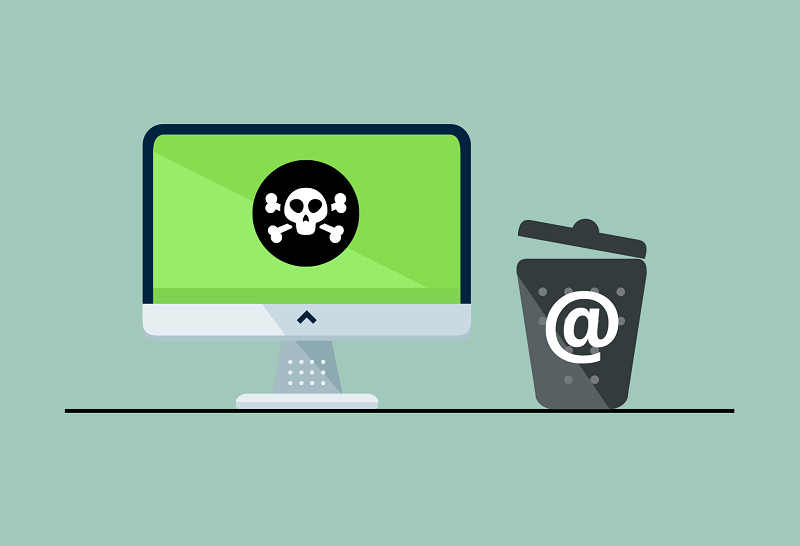
SENDER REPUTATION: WHY DOES IT MATTER?
Your ability to communicate with your customers, old and new, through email is only as good as your company or brand’s sender reputation. Why is that? Because your sender reputation is what determines whether ISPs trust you as a sender and thereby allow your messages to reach your intended recipients. So, if you want your email marketing campaign to succeed, then you need to have a positive sender reputation and keep the sender score as high as possible. Of course, to do that, you’ll need to first understand what we’re talking about.
What is the Sender Reputation?
You probably have an inkling of what “sender reputation” is. In life, a person’s reputation is used to help individuals determine whether to trust someone they don’t know. In the same way, the sender reputation is used by ISPs in order to evaluate you as a sender and how trustworthy you are. Basically, it is a score that is given to you by ISPs according to several criteria:
- How many people have marked your emails as spam or complain to the ISP about your messages?
- The amount of email you’ve sent
- How often the company runs into spam traps
- Being included in different blacklists.
- How many people interact or engage with the messages?
- How many people unsubscribe from the organization’s email list?
- Take note that ISPs have their own priorities; they will be the ones to assign the weight of each factor listed above and how they affect the sender score.

Why does the sender reputation matter?
Why do you need to be reviewed about your “sender reputation?” We’ve already mentioned that it can affect your delivery rate. In simpler terms, the sender reputation can make or break your email marketing campaign. Just like your credit score will help determine if you get approved for a loan, your sender reputation will determine if your message will be passed on to the intended recipients by the email provider. This means that it’s very, very important (we cannot stress this enough). The higher the score you have, the better your delivery rates will be. If your score is below a certain number, your emails may end up in the spam folder. Or, worse, it may end up being blocked completely from being delivered. Take note that each ISP will provide its own reputation score.
List to 21 Handshake Marketing’s Podcast about Email Marketing Mistakes that include ignoring Sender Reputation:
Poor email address quality
Your email list quality determines what can and can’t be delivered successfully. If your list has any disabled, non-responsive, undeliverable email addresses, it will affect your bounce rate. It will also affect how many of your emails will be opened and clicked and how many will consider your email as spam. In short, unverified email addresses on your email list can cause your sender reputation to go down.

Sender’s Resources are on a blacklist
An email blacklist is a real-time database of IP addresses and domains that have been evaluated and determined as senders of spam emails. In other words, an email marketer who’s mailing IPs and/or domains are listed on an AntiSpam Site or service’s blacklist or blacklisted by any ISP for sending to spam traps will likely have their emails sent directly to the spam folder or rejected altogether. If this happens, the sender’s email becomes “blocked” by many recipients and their sender reputation will decrease accordingly. If you want your emails to get through to your intended recipients, you’ll need to improve your sender reputation which includes getting removed from the blacklists and cleaning your emails to remove the spam traps, disabled accounts, and other nefarious emails causing your listings.
Obviously, if you have a low email sender reputation score, then your emails aren’t going to be delivered to the right subscribers or prospects which means the failure of your email marketing campaign. This also means that all future email marketing campaigns will need to be postponed until your reputation is “restored” or has improved if you want it to be successful. If your emails are blocked by many recipients, the less likely you’ll get engagement which will result in lower revenue and lower ROI.
Email Validation Services to improve your Email Sender Reputation
So, how does one improve email sender reputation? There are several ways to do that. If your low email sender reputation is caused by poor email address quality, then your first step should be to clean up your email list. You can do this using email verification and validation services. This can help you identify any invalid, fake and unresponsive email addresses that may have become recycled spam traps. Eliminating these harmful email addresses can help you get higher deliverability and open rates which can result in improving your sender reputation.
Below are some tips for improving your sender reputation:
- Refrain from sending unsolicited emails
- Make “Unsubscribe” easy for email recipients
- Use unique IP addresses
- Create more personalized content for increasing the engagement
Another step is to use a double opt-in subscription method. Or, to put it more simply, send confirmation emails so that any email addresses you get are proven to belong to real people. This ensures that your email list remains clean and accurate which can result in a better sender reputation. It will also cause your engagement to grow. Only people who are interested in receiving your content will confirm their email addresses just to become part of your mailing list. One thing you should be careful with is purchasing an email list from a third party. It’s a risk that could end up trashing your sender reputation before you even have a chance to build it.
Also, make sure that you’re sending your emails consistently. Figure out a schedule and stick with it. Don’t be sporadic about when you’ll be sending out emails because it makes you look more like a spammer. In addition, try sticking to slower cadence, at first, and throttle your sends accordingly. Too many emails sent per week can cause your subscribers to get frustrated with you which could lead to them unsubscribing or submitting a complaint. More importantly, make sure your emails always provide value to the recipient. By making your emails relevant and interesting to your customers, it increases the likelihood of people interacting with your message. This will make a positive impact on your sending and increase your sending reputation. Avoid using certain words in email such as “Act Now” or “money-back guaranteed” as well as too many exclamation points. These are common marketing terms that are considered red flags and may cause people to think you’re sending spam emails. It can hurt your sender reputation even if you’ve been careful to follow other do’s and don’ts.
And if you’re wondering if doing all of these things are really worth the effort, let us give you some statistics here. According to studies, the company that measures sender reputation using a metric called Sender Score, businesses that scored 99 to 100 (highest scores) only had 2 percent of their messages land in the spam folder. Those who scored 91 to 100 had lower complaint rates on average at 0.17 percent while those with a sender score of 71 to 80 had complaint rates of 2.29%. Also, one-quarter of the senders who scored that low had their messages landing in the junk folder. In short, an OK reputation isn’t enough anymore to get your emails delivered. It must be at the highest level possible.
